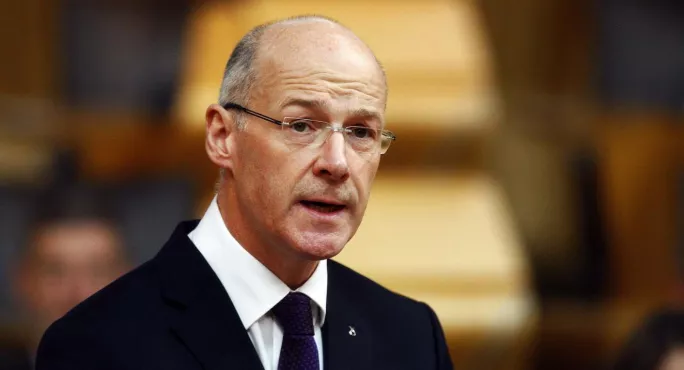‘Scrapping our national tests for 5-year-olds makes little sense’
Share
‘Scrapping our national tests for 5-year-olds makes little sense’
Education secretary John Swinney has said that a move by one of Scotland’s largest councils to scrap controversial national assessments for five-year-olds “makes little sense”.
Fife Council yesterday voted to scrap the Scottish National Standardised Assessments (SNSAs) for P1 pupils, becoming the first local authority to do so.
The council - run jointly by Labour and the SNP - voted 41 to 26 to scrap the P1 SNSAs, although the decision does not affect SNSAs at P4, P7 and S3.
Labour co-leader David Ross, who lodged the successful motion to scrap the tests of literacy and numeracy, said teachers, parents and unions backed the “tried and tested” assessments previously used in Fife. The intention is to reintroduce them next year - although Scotland’s largest education union, the EIS, has said this could be “even more damaging” than the SNSAs.
Kathleen Leslie, education spokeswoman for the Fife Conservative group, said of P1 SNSAs: “These assessments are educationally flawed and potentially damaging to such young children.
“Thirty-two minutes for numeracy and 44 minutes for literacy is far too long to expect a five-year-old to undergo an assessment, particularly as they bear little relation to the experiences and outcomes for the early-years curriculum.”
Fife’s SNP councillors voted against the bid to scrap the assessments, although it is unclear how easy this will be to do and the Scottish government insists that, if the previous testing regime is reintroduced, it will mean children taking two types of assessments rather than one.
The tests - run for the first time in 2017-18 - were introduced amid concerns over falling standards of literacy and numeracy and a lack of consistent data across Scotland. But there have been mixed messages about their purpose since they were announced by first minister Nicola Sturgeon in 2015.
A grassroots movement against P1 SNSAs has gained considerable momentum this year, and in September, MSPs voted in favour of a halt to the assessments in P1. Education secretary John Swinney later announced an independent review of P1 SNSAs, but said they would carry on as planned in 2018-19.
In response to the Fife vote, Mr Swinney said: “If Fife Council were to revert to their previous systems, P1 pupils would face two assessments per year, rather than the single assessment they currently undertake. It is difficult to see how this would address the concerns raised around workload and pupil experience.
“It is, in fact, the precise opposite of what they claim they are trying to achieve and would cost taxpayers more money to double the tests P1 pupils face. That makes little sense.”
The government insists that no education directors have raised significant concerns by parents about P1 SNSAs and that there is no evidence to justify stopping them.
EIS union general secretary Larry Flanagan said: “While we welcome Fife Council’s decision to scrap SNSAs for P1, this should not be at the cost of a return to Fife’s previous system of overusing other forms of standardised assessments - every year and with all age groups.
“If the council is serious about ensuring that all assessment genuinely supports learning and is committed to relieving the pressure that standardised assessment places on pupils, they should not be replacing SNSAs with a model that is potentially more damaging.”
Mr Flanagan added that Fife was proposing “a return to the authority’s previous Sats style of testing, which is even less compatible with Curriculum for Excellence and is entirely inappropriate at P1 Early Level where children are supposed to experience a play-based curriculum, with activities designed to progress their learning through play”.
He said: “It seems that this decision has been taken in Fife on a political basis, rather than on educational grounds. Replacing SNSAs with a more damaging form of standardised assessment does not bring any educational benefit for pupils.”
Scottish Labour education spokesman Iain Gray said Mr Swinney had “lost control” of schools policy.
He said: “His flagship Education Bill was binned, the Budget leaves schools facing teachers’ strikes in a matter of weeks, and now his national testing is no longer national, at least in P1.”




